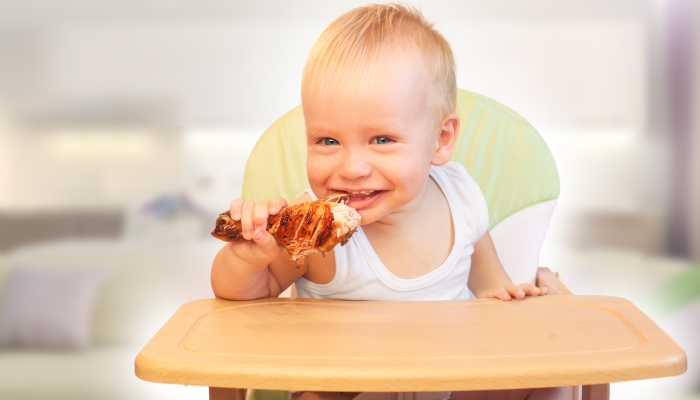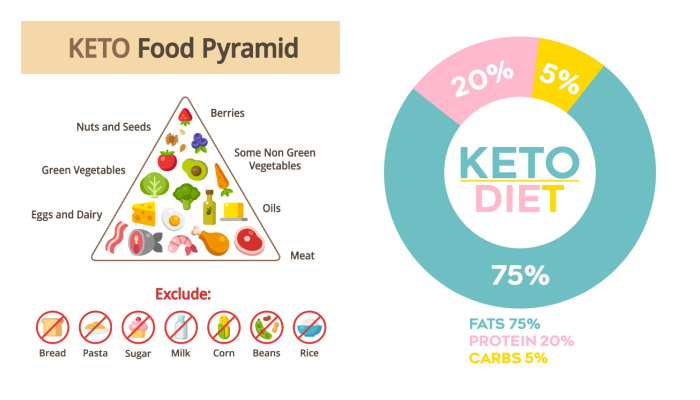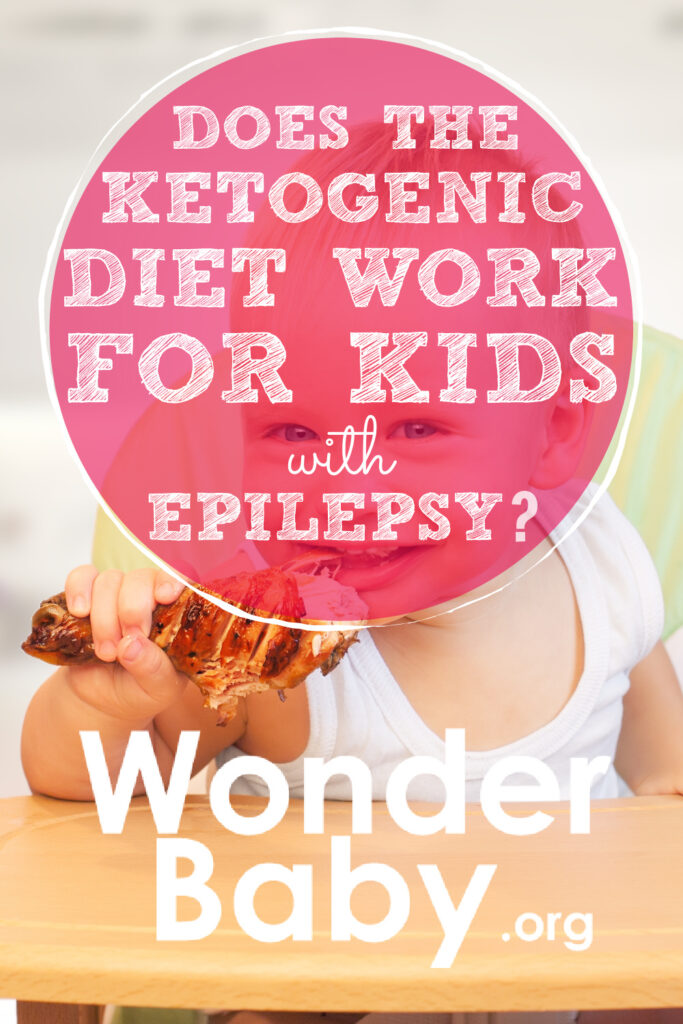Does the Ketogenic Diet Work for Kids with Epilepsy?

- If medicine has not helped control your child’s epileptic seizures, a ketogenic diet may help your child achieve better seizure control.
- Dietary treatments like the keto diet are commonly used in children of all ages to prevent seizures.
- A ketogenic diet includes foods high in fat and low in carbohydrates, and a moderate amount of protein.
- The keto diet works in children whose seizures can not be controlled by medications alone.
- Your child’s doctor must prescribe and monitor this dietary treatment option.
Having a child with a seizure disorder like epilepsy can be challenging. There are many different treatments available for epilepsy, but many children continue to suffer from seizures despite taking anti-seizure medications.
If your child has uncontrolled or refractory epilepsy and you are looking for an alternative treatment for epilepsy, your doctor may recommend a ketogenic diet to help reduce your child’s seizures. Research has shown that children with epilepsy who follow a ketogenic diet experience fewer seizures, and some can even become seizure-free.
A ketogenic diet is a high-fat, low-carbohydrate, moderate-protein diet that requires careful monitoring by your child’s doctor and a registered dietitian. In this guide, you will learn everything you need to know about ketogenic diets for epileptic children.
Ketogenic Diet: What Parents Should Know

If medicine has not successfully managed your child’s seizures, consider speaking with your doctor about a keto diet. A ketogenic diet is a special diet that is very high in fat, low in carbohydrates, and includes moderate protein.
The foods that should be eaten on a keto diet include high-fat food like butter, oil, and avocado, full-fat dairy products like cheese and heavy whipping cream, bacon, sausage, and fatty fish.
Children on this diet should also consume a variety of fresh, colorful vegetables, nuts, and eggs. In addition, the keto diet restricts any amount of carbohydrates, including grains, bread, rice, pasta, fruits, sweets, and fruit juice.
In a normal diet, carbohydrates are broken down into glucose, which the body uses as its primary energy source. In a ketogenic diet, the body converts fat into ketones which replaces the job of glucose to fuel the body. As ketones increase, the body goes into a state of ketosis.
Researchers have discovered that higher levels of ketones within the body have been shown to reduce seizure activity in children who suffer from epilepsy syndromes.
Is the Ketogenic Diet Safe for Kids?
Yes! The keto diet is a safe treatment for children of all ages with epilepsy. Children as young as six weeks can follow a ketogenic diet as long as they are closely monitored to ensure they consume enough calories, vitamins, and minerals for proper growth and development.
A study on the efficacy and safety of the ketogenic diet found that “currently, [Ketogenic Diet Therapies] KDTs have been shown to be safe and effective for infants as young as 6 weeks with some evidence suggesting that children younger than 2 years of age may be an ideal age population to start the [classic ketogenic diet] cKD.”
Although the keto diet can benefit children with epilepsy disorders, it is not nutritionally balanced like a regular diet. Therefore, children will need vitamin and mineral supplements to maintain proper nutrition for growth and development. Your child’s doctor will recommend supplements depending on your child’s specific circumstances. Common supplements can include
- Vitamin D
- Multivitamin
- Fish oil
- Vitamin C
- Iodine
- Probiotics
Keto Diet for Child Epilepsy: Does It Work?

Yes, a keto diet does work!
A 1998 study conducted by Vining, et al and published in the Archives of Neurology, found that 40% of children saw a greater than 50% decrease in seizures within one year of beginning the ketogenic diet. Some children on the ketogenic diet continue taking daily medication to help control their seizures, while others may experience seizure control with dietary therapy alone.
How is the Keto Diet Started?
A ketogenic diet requires close medical supervision. A recent study establishing guidelines for initiating the dietary treatment emphasized the need for “pre-KD counseling and evaluation” as well as continued “monitoring of adverse effects at initiation and follow-up.”
When your child first starts a ketogenic diet, they will be admitted to the hospital for close monitoring. The diet is initiated slowly over a few days to ensure their body is able to safely convert into a state of ketosis.
While in the hospital, your child will have blood and urine tests to monitor if their body is producing ketones. Your child’s food should be carefully weighed on a gram food scale, and a dietician will help you create a meal plan with the correct ratio of fat, carbohydrates, and protein needed for your child. The total calories your child needs are determined by your child’s age, height, and weight.
Your doctor will refer your child to a ketogenic diet team to help you monitor that your child is growing and developing normally while maintaining such a high-fat diet. The team will also teach you to check your child’s urine to monitor ketone production at home.
How Long Do Kids With Epilepsy Need a Ketogenic Diet?
Most children experience decreased seizure activity within a few months of starting the keto diet. If your child can control their seizures with the keto diet, your doctor will recommend continuing the diet for about two years. After this time, your doctor may recommend weaning your child off the diet slowly over a few months to avoid triggering seizures.
If the diet is successfully reducing seizures, it is perfectly safe to continue long-term. However, if your child is following a keto diet long term, they still need to be monitored by a doctor to ensure they are growing and developing normally for their age.
Does the Keto Diet for Kids With Epilepsy Have Any Side Effects?

Although the keto diet is safe for children with epilepsy, some side effects are associated with long-term use. Some side effects include
- Constipation
- Kidney stones
- Dehydration
- High cholesterol levels
- Weakened bones
- Slowed growth
Close monitoring makes a ketogenic diet perfectly safe for younger and older children. However, a high-fat diet like the keto diet should not be used in children or teenagers to burn fat or for weight loss.
FAQs
Are there other versions of the keto diet that are less restrictive for kids?
Yes, your child may benefit from a modified ketogenic diet like the Modified Atkins Diet or other low glycemic index treatment. Both of these alternatives are less restrictive in the foods your child is allowed to eat, which may be beneficial if your child requires more protein than is recommended in a proper ketogenic diet.
A long-term overview of the history and efficacy of the ketogenic diet in kids found that “alternative and more flexible KD variants have been developed to make the treatment easier and more palatable while reducing side effects and making it available to larger group of refractory epilepsy patients.” Alternative ketogenic diets may include “Medium Chain Triglyceride (MCT)-KD, modified Atkins diet (MAD) and low glycaemic index treatment (LGIT)” according to another review.
Speak to your doctor to learn more about a Modified Atkins Diet or other low carbohydrate diet options.
Will the ketogenic diet affect my child’s growth and development?
The ketogenic diet should not affect their growth and development as long as enough calories, vitamins and minerals are consumed.
How old does my child need to be to start the keto diet?
Children in infancy can be placed on a keto diet under the supervision of a doctor. Speak to your doctor about ketogenic formula if your baby is not old enough to consume enough calories from solid foods.
How do we ensure our child gets all the necessary nutrients while on the ketogenic diet?
Ensuring your child consumes the necessary nutrients while on a ketogenic diet can be difficult and time-consuming. If your doctor recommends a ketogenic diet for your child, they will also refer you and your family to a ketogenic diet team to help you manage food plans and monitor your child’s growth.
Can our child still participate in social events like birthday parties while on the ketogenic diet?
Although it may be challenging to manage a keto diet, especially with picky toddlers, your child can still participate in birthday parties and other social events. You may just have to plan to bring keto-friendly foods for your child to enjoy.
What happens if our child doesn’t respond well to the ketogenic diet?
If your child does not respond to a ketogenic diet, your doctor may recommend alternative medications or, in severe cases, epilepsy surgery. You may want to invest in a seizure monitor so you can keep accurate records of your child’s seizure activity before and during treatment. We recommend the SAMi-3 nighttime activity monitor.
Can a high-fat diet reduce seizures in children with other seizure types?
Yes, children with other seizure types like infantile spasms, Doose syndrome, Dravet syndrome, and Rett syndrome have been able to control seizures with the keto diet.
Is the keto diet expensive?
Although many foods marketed for the keto diet are more expensive than other foods, maintaining a state of ketosis does not need to break the bank. Many food options are available for your child that do not cost more than a regular diet.
References
- Miranda, Maria J., Zahava Turner, Gwyneth Magrath. Alternative diets to the classical ketogenic diet—Can we be more liberal? Epilepsy Research, Volume 100, Issue 3, 2012, Pages 278-285, ISSN 0920-1211, doi: https://doi.org/10.1016/j.eplepsyres.2012.06.007
- Sampaio LP. Ketogenic diet for epilepsy treatment. Arq Neuropsiquiatr. 2016 Oct;74(10):842-848. doi: https://doi.org/10.1590/0004-282X20160116. PMID: 27759811
- van der Louw E, van den Hurk D, Neal E, Leiendecker B, Fitzsimmon G, Dority L, Thompson L, Marchió M, Dudzińska M, Dressler A, Klepper J, Auvin S, Cross JH. Ketogenic diet guidelines for infants with refractory epilepsy. Eur J Paediatr Neurol. 2016 Nov;20(6):798-809. doi: https://doi.org/10.1016/j.ejpn.2016.07.009
- Vining EPG, Freeman JM, Ballaban-Gil K, et al. A Multicenter Study of the Efficacy of the Ketogenic Diet. Arch Neurol. 1998;55(11):1433–1437. doi: https://doi.org/10.1001/archneur.55.11.1433
- Wells, J., Swaminathan, A., Paseka, J., & Hanson, C. Efficacy and Safety of a Ketogenic Diet in Children and Adolescents with Refractory Epilepsy—A Review. Nutrients, 12(6), 1809. doi: https://doi.org/10.3390/nu12061809

The information WonderBaby provides is not intended to be, and does not constitute, medical or other health advice or diagnosis and should not be used as such. Always consult with a qualified medical professional about your specific circumstances.
Related Posts

Special Needs
5 Spring Cleaning Tips for Families of Children with Disabilities
Spring cleaning is an opportunity to create a more accessible, organized, and supportive space for your child with disabilities. Declutter, deep clean, and refresh!

Visual Impairment
The Gift of Understanding: How a Young Child Helps His Blind Father Navigate Life
When a parent is blind, it’s natural for people to wonder how their sighted child will adapt. Will they struggle to understand their parent’s needs? Will they feel burdened by...

Assistive Technology, Support
May We Help: Engineering Independence for People with Disabilities
May We Help is dedicated to designing and building custom solutions that help individuals of all ages achieve mobility, access, and independence, all at no cost.